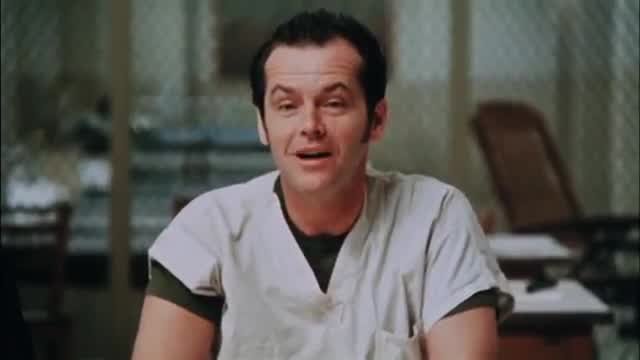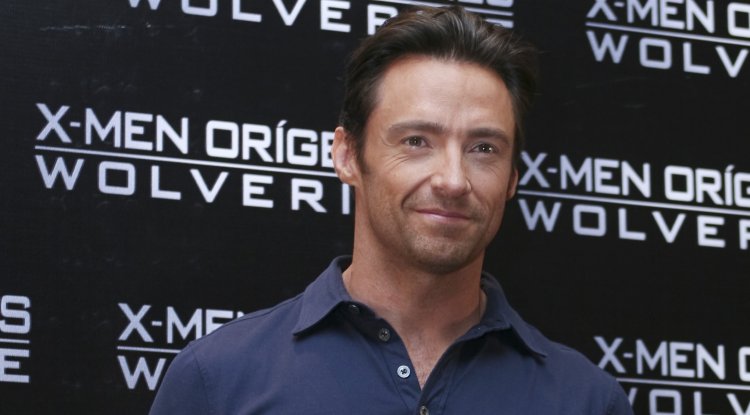'One Flew Over the Cuckoo's Nest' (1975)
"One Flew Over the Cuckoo's Nest," directed by Milos Forman and released in 1975, is a cinematic masterpiece that explores the boundaries of sanity, freedom, and individuality. Adapted from Ken Kesey's novel of the same name, the film is an emotional and thought-provoking journey that delves into the complexities of human psychology and the oppressive nature of institutionalization. With its exceptional performances, captivating storytelling, and powerful social commentary, "One Flew Over the Cuckoo's Nest" remains a seminal work in cinema history.

Plot and Setting
The film is set in a mental institution in Oregon during the 1960s. Randle McMurphy, a charismatic and rebellious man, feigns insanity to escape prison and ends up in the institution. He soon becomes a disruptive force challenging the authority of Nurse Ratched, the controlling and manipulative head nurse. Through McMurphy's interactions with the other patients, the film explores themes of individuality, freedom, and the struggle against oppressive systems.
Performances and Character Study
"One Flew Over the Cuckoo's Nest" boasts outstanding performances, particularly by Jack Nicholson as Randle McMurphy and Louise Fletcher as Nurse Ratched. Nicholson's portrayal of McMurphy is a tour de force, capturing his charisma, wit, and internal conflicts. Fletcher's Nurse Ratched embodies cold authority and subtle manipulation, creating an antagonist that is both formidable and deeply unsettling. The ensemble cast, including memorable performances by Brad Dourif, Christopher Lloyd, and Danny DeVito, adds layers of complexity to the diverse group of patients.
Social Commentary and Power Dynamics
At its core, the film offers a scathing critique of institutional power dynamics and the dehumanizing effects of conformity. Nurse Ratched symbolizes oppressive authority, enforcing strict rules and psychological control over the patients. Through McMurphy's rebellion and his influence on the other patients, the film examines the inherent struggle between individuality and conformity, highlighting the importance of personal agency and the detrimental effects of oppressive systems.
Cinematic Techniques and Visual Storytelling
Milos Forman's direction and the film's visual storytelling contribute to its immersive and impactful nature. The use of subjective camera shots, combined with atmospheric cinematography, places viewers in the minds of the characters, heightening their emotional connection. The film's visual motifs, such as the recurring image of the barred window, symbolize confinement and restriction, while the moments of liberation are portrayed with a sense of freedom and release.
Emotional Resonance and Themes of Identity
"One Flew Over the Cuckoo's Nest" delves into the theme of individual identity and the search for self-worth. McMurphy's charismatic presence challenges the other patients to embrace their individuality and reclaim their sense of self. The film explores the human need for validation, connection, and personal fulfillment, ultimately questioning the true nature of sanity and what it means to be "normal" in society.
Cultural Impact and Awards
"One Flew Over the Cuckoo's Nest" made a significant impact on popular culture and received critical acclaim upon its release. It won five Academy Awards, including Best Picture, Best Director, Best Actor for Jack Nicholson, Best Actress for Louise Fletcher, and Best Adapted Screenplay. The film's success not only solidified its place in cinematic history but also ignited important conversations about mental health, societal conformity, and the power of the human spirit.
Also Check Spinach as a medicine for a healthier organism!
Conclusion
"One Flew Over the Cuckoo's Nest" remains a cinematic masterpiece that resonates with audiences for its compelling performances, thought-provoking themes, and powerful social commentary. Through its exploration of individuality, freedom, and the oppressive nature of institutionalization, the film challenges viewers to question the status quo and consider the importance of personal agency and human connection. With its enduring impact on both cinema and society, "One Flew Over the Cuckoo's Nest" continues to be regarded as a landmark film that pushes the boundaries of storytelling and sheds light on the complexities of the human condition.




























